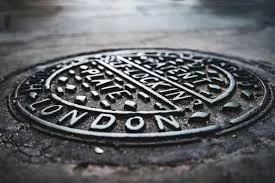Exploring Different Sizes of Tree Grates for Urban Landscaping and Design
Understanding Tree Grate Sizes A Guide for Urban Landscaping
As urban environments continue to grow and evolve, the need for incorporating greenery into our cities has become increasingly important. One popular way to blend nature with development is through the use of tree grates. These are metal grates placed around trees planted in sidewalks or streets, providing a balance between protecting the tree roots and allowing pedestrian access. One crucial aspect of tree grates that city planners, landscape architects, and urban gardeners must consider is the size.
What Are Tree Grates?
Tree grates are essential components in urban landscaping, designed to enhance the aesthetic appeal of streetscapes while providing functional benefits. These metal structures allow air, water, and nutrients to reach the tree roots while preventing soil erosion and facilitating pedestrian movements. Their design can vary greatly in terms of material, shape, and size, making size a critical factor in their effectiveness.
Importance of Size
When selecting the appropriate tree grate size, several factors must be taken into account. The size of the grate must accommodate the growth of the tree, allowing enough space for roots to spread while minimizing the risk of damage to sidewalks and surfaces. An inadequately sized tree grate can hinder a tree's growth, leading to health problems and ultimately shorter lifespans.
Moreover, the size of tree grates should also consider the surrounding landscape. In wider sidewalks or plaza areas, larger grates may be appropriate to create a visually appealing space that enhances the overall aesthetic. Conversely, in narrower street settings, smaller grates that offer functionality without overcrowding might be necessary.
Standard Sizes and Customizations
tree grate sizes

Tree grates come in a range of standard sizes, typically spanning from 2 feet to 5 feet in diameter. Standardized sizes are advantageous for bulk purchasing and installation, ensuring consistency throughout a project. However, each urban landscape has its unique challenges and characteristics, prompting many cities to opt for custom-designed tree grates. Customization allows planners to consider not only tree growth but also the local ecosystem, pedestrian traffic patterns, and aesthetic preferences.
Material Considerations
The material used in constructing tree grates also impacts size selection. Metal grates, often made from cast iron or steel, tend to be durable and can support significant weight, allowing for easier integration into high-traffic areas. The dimensions of these materials may vary, and heavier materials can often be made in larger sizes without compromising structural integrity. On the other hand, lighter materials such as aluminum might require smaller sizes to maintain durability.
The Aesthetic Factor
Beyond functionality, the size and design of tree grates contribute significantly to the visual character of urban landscapes. Artistic designs are often built into the grates, with larger sizes allowing for intricate patterns that enhance the area’s beauty. This aesthetic consideration is essential in creating inviting public spaces that encourage community interaction and appreciation for greenery.
Conclusion
In summary, selecting the appropriate tree grate size is crucial for urban landscaping efforts. It involves a delicate balance between functionality, tree health, and aesthetic appeal. Whether opting for standard sizes or pursuing custom designs, understanding the unique needs of each setting will contribute to the long-term success of urban greenery initiatives. As cities continue to grow, the integration of well-designed tree grates will undoubtedly play a pivotal role in creating sustainable, thriving urban ecosystems.
-
The Smarter Choice for Pedestrian AreasNewsJun.30,2025
-
The Gold Standard in Round Drain CoversNewsJun.30,2025
-
The Gold Standard in Manhole Cover SystemsNewsJun.30,2025
-
Superior Drainage Solutions with Premium Gully GratesNewsJun.30,2025
-
Superior Drainage Solutions for Global InfrastructureNewsJun.30,2025
-
Square Manhole Solutions for Modern InfrastructureNewsJun.30,2025
-
Premium Manhole Covers for Modern InfrastructureNewsJun.30,2025
